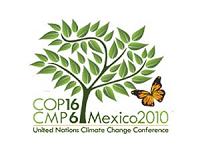| . |  |
. |
Pittsburgh PA (SPX) Dec 14, 2010 How much is that new computer server contributing to your company's carbon footprint? What about the laptop you bought your child for Christmas? As it turns out, answering those questions may be more difficult than you might think. The results of a recent study by Carnegie Mellon's Christopher Weber found that the calculation of carbon footprints for products is often riddled with large uncertainties, particularly related to the use of electronic goods. Weber, an adjunct professor in the university's Department of Civil and Environmental Engineering and a research staff member at the Science and Technology Policy Institute in Washington, D.C., found that a cache of variables from production and shipping to technology used in creating a product can alter the accuracy of carbon footprint labeling. In particular, Weber and his team studied an IBM computer server. "We found that the use phase of the server accounted for an estimated 94 percent of the total greenhouse gas emissions associated with the product," said Weber. "This finding confirmed the importance of IBM's ongoing efforts to increase energy efficiency of its server products and the data centers where servers are used." However, while the study confirmed the importance of server energy efficiency on the product's overall carbon footprint, it also highlighted the large uncertainties in quantifying the server's carbon footprint. "Variability in the electricity mixes of different markets led to vastly different impacts of product use and greenhouse gas emissions in different geographic locations," said Weber. "Further complex systems requiring integrated circuits and several generations of technology increase the uncertainty of carbon footprint estimation for electronic goods," Weber said. Still, globally more and more companies are seeking to estimate the carbon footprints of their products, and sometimes are going further into products' environmental impacts on water and pollution. This can be an even more difficult task to estimate. "Given the increased interest in product carbon footprints, we need to continue to question the accuracy of carbon footprint techniques, especially for complex information technology products. At this point, carbon footprint estimation methodologies are not accurate enough to warrant putting footprint labels on most products," said Weber.
Share This Article With Planet Earth
Related Links Carnegie Mellon University Climate Science News - Modeling, Mitigation Adaptation
 In Cancun climate talks, India enjoys place in sun
In Cancun climate talks, India enjoys place in sunCancun, Mexico (AFP) Dec 12, 2010 India has emerged as a new global power on climate change, with major nations voicing praise - and surprise - at New Delhi's agile diplomacy that helped produce a deal in Cancun, Mexico. Jairam Ramesh, India's outspoken environment minister, was instrumental in breaking a deadlock over how to verify nations' climate actions and, for the first time, said that his country would consider a bi ... read more |
|
| The content herein, unless otherwise known to be public domain, are Copyright 1995-2010 - SpaceDaily. AFP and UPI Wire Stories are copyright Agence France-Presse and United Press International. ESA Portal Reports are copyright European Space Agency. All NASA sourced material is public domain. Additional copyrights may apply in whole or part to other bona fide parties. Advertising does not imply endorsement,agreement or approval of any opinions, statements or information provided by SpaceDaily on any Web page published or hosted by SpaceDaily. Privacy Statement |